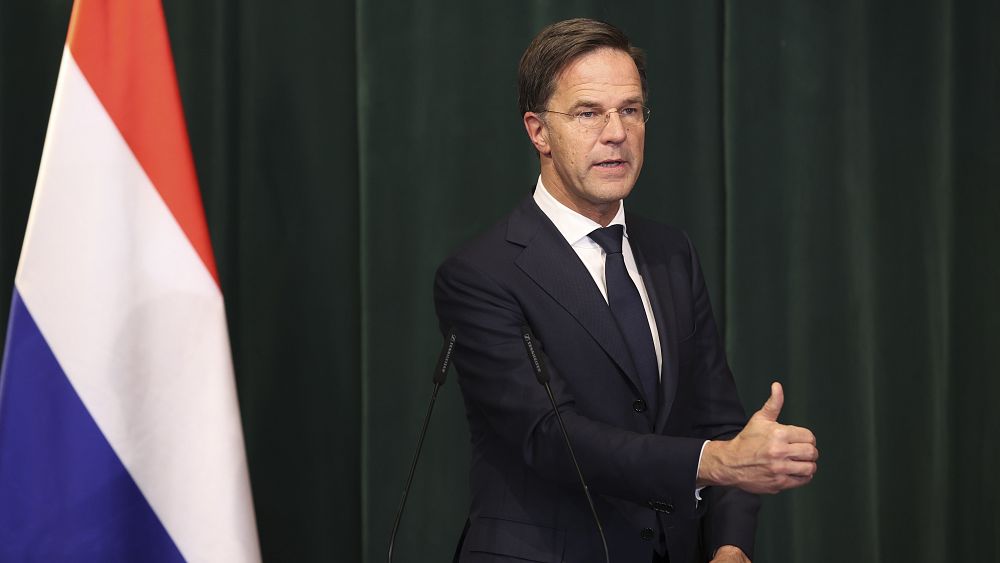
Mark Rutte looks set to serve as Dutch prime minister for a fourth term after four parties agreed to form a coalition government on Monday evening ending nine months of negotiations.
Rutte’s centre-right VVD, the centre-left D66, the centre-right CDA and Christen Unie (conservatives) reached an agreement text that will be presented to parliament on Wednesday.
“The text has been accepted,” a spokesman for Johan Remkes and Wouter Koolmees, who were overseeing the negotiations, was quoted as saying by the ANP news agency. Television stations NOS and RTL also announced the agreement.
The negotiations, which began after the parliamentary elections in mid-March, lasted 271 days — a new record for the Netherlands after 225 days without a government in 2017, but still far from the Belgian record of 541 days without a sitting government.
“It’s a good agreement,” Rutte told reporters after the talks, yet declining to give further details.
Sigrid Kaag, whose D66 party won the second most seats in the March 17 elections, added that it was a “nice and balanced deal”.
‘Teflon’ Rutte
Rutte, first elected in October 2010, resigned as prime minister in January over a child benefit scandal but remained in position in a caretaker capacity.
He was not disowned by voters in the March parliamentary elections, which his VVD party won handily, and then narrowly survived a no-confidence just two weeks later.
This ability to emerge unscathed from political crises has earned him the nickname “Teflon”.
With this fourth term, Mark Rutte will become one of Europe’s longest-serving leaders, after Hungary’s Viktor Orban who took office in May 2010, but still be a long way from Angela Merkel’s 16 years at the head of Germany.
The parties in the new coalition will present the agreement to their parliamentary groups on Tuesday and open it up to parliamentary debate on Wednesday.
However, the Netherlands, which is facing a new wave of COVID-19 infections that have led to unpopular restrictions, will have to wait until January for its new government, while the coalition divides up the ministries.
COVID backlash
Among the expected policy announcements, the future coalition is foreseen to announce an extension of free childcare, billions of euros of investment to tackle climate change, housing shortages and nuclear energy research, as well as the introduction of road tolls, according to NOS.
D66 leader Kaag is expected to be reappointed as foreign minister, according to media reports.
Appointed to the post in May, she resigned in August after being criticised by parliament for her chaotic handling of the evacuation from Afghanistan and for failing to see signs of an imminent Taliban takeover of the country.
Current health minister Hugo de Jonge, the public face of the fight against the pandemic in the Netherlands, is not expected to be reappointed, and his press briefing on Tuesday alongside Mark Rutte is expected to be his last in that post.
The country has been rocked by violent riots this year in response to government health measures to curb the surge in COVID-19 cases.
These included a curfew from 17:00 to 05:00 (except for essential shops) and a restriction on the number of home visits.
The country of 17 million inhabitants has recorded more than 2.7 million infections since the beginning of the epidemic, and more than 19,700 deaths.